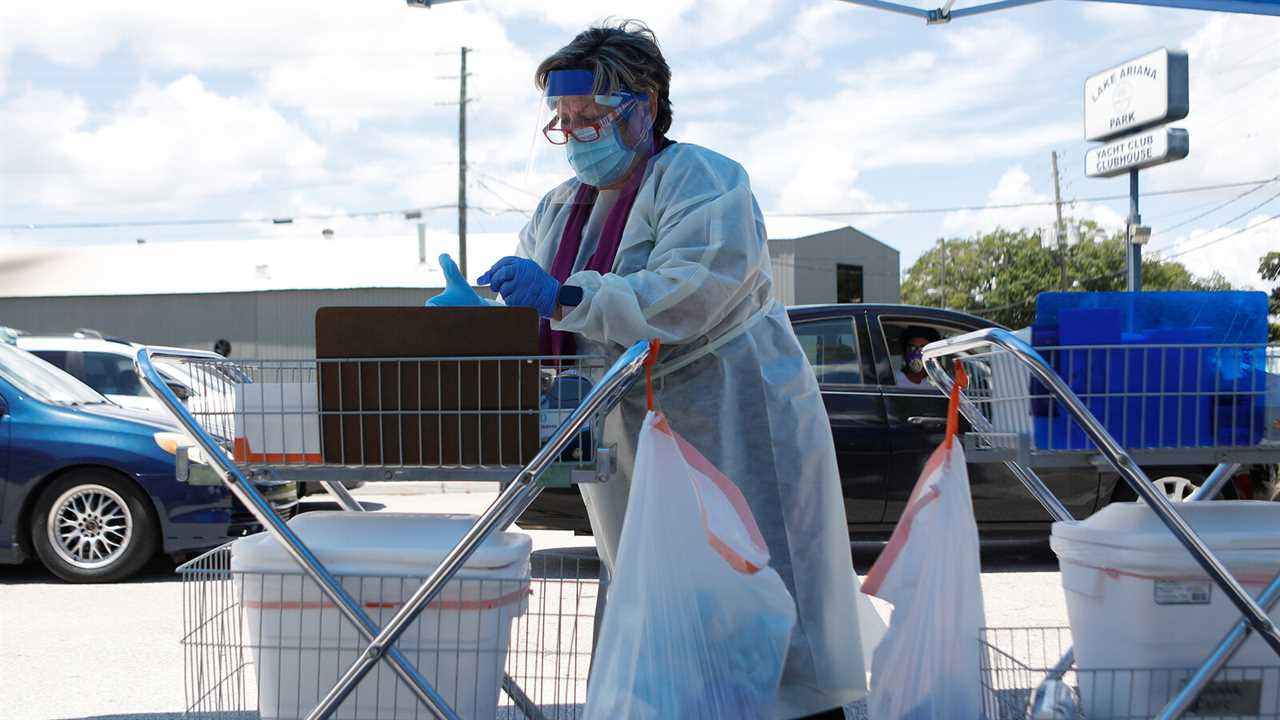
There were no open I.C.U. beds on Wednesday in Alabama, or in parts of Florida, Louisiana, Mississippi and Texas, as hospitals across the South buckled under the weight of a coronavirus surge that could have been mitigated. Cases, hospitalizations and deaths are increasing nationwide. Every day, on average, more than 800 Americans are dying from Covid-19.It is a humanitarian catastrophe, and yet many Americans see it through a political lens. The South has some of the nation’s lowest vaccination rates, driven partly by Republican reluctance. Some governors — including Gov. Greg Abbott of Texas, who is infected with the coronavirus himself — have forbidden local officials to impose mask requirements. Gov. Ron DeSantis of Florida, who has not changed his approach to follow public health guidelines, has claimed falsely that the surge is a result of President Biden’s border policies.The divisions extend beyond policies to general attitudes about the pandemic: While nearly 60 percent of Americans overall said in a recent Quinnipiac poll that they were concerned about the Delta variant, more than 60 percent of Republicans said they weren’t. And research indicates that many people are looking at Covid policies they don’t like and blaming whichever party they’re not part of.It’s enough to make one despair about the American public’s ability to deal in a nonpartisan manner with, well, anything.But that may not quite be right.I talked to several political scientists and pollsters about how the current Covid wave might affect public opinion and, more important, public behavior. Here’s what they said.The bad news: Partisanship is really hard to overcome.
Partisanship — more specifically negative partisanship, which is animosity toward the other party as opposed to, or in addition to, a positive allegiance to your own — is an extraordinarily powerful force in American politics. It has become only stronger in recent years as partisanship has become increasingly intertwined with religious and racial identities.When people look at the pandemic or Afghanistan or any other issue, “you’re doing so through this lens of the identity you have and preserving a self-esteem about that identity,” said Julie Wronski, an associate professor at the University of Mississippi who studies political psychology and behavior. “You’re trying to think about the people who are on ‘my team’: Are they good people? Are they winners? And the people on the other team are ‘bad people’ or ‘losers.’”Some of what we’re seeing now in response to the pandemic was baked in very early on, as soon as elected officials — most prominently President Donald J. Trump — began to politicize basic public health measures, leading people to see support for masks or vaccines as partisan.“That didn’t necessarily have to happen, but once it did, you’re not necessarily talking about the science,” Professor Wronski said. “It’s about who they are and who they consider themselves to be.”One group of researchers had an unusual opportunity to study how partisan identity shaped people’s views on Covid, because in 2019, they surveyed more than 3,300 people about their political predispositions for an unrelated project. Once the pandemic began, they went back to the same people, and about 2,500 responded to follow-up questions.They found, in research published in peer-reviewed journals in August and November 2020, that highly partisan Republicans took their initial cues from leaders like Trump and then stuck to them no matter what — even if Covid cases and deaths surged in their state, even if people around them got sick, said one of the five researchers, Yanna Krupnikov, a professor of political science at Stony Brook University.Another of the five, Samara Klar, an associate professor at the University of Arizona’s School of Government and Public Policy, said the crucial element appeared to be not party affiliation alone, but active animosity toward the opposite side.“We’re seeing the gap mostly among those people who personally dislike the other party, and that’s weird,” Professor Klar said. “It’s weird for your views on a public health crisis to be guided by your personal feelings toward members of the other party, but that is in fact what we’re finding.”The Coronavirus PandemicLatest Updates
Updated Aug. 19, 2021, 6:30 p.m. ETGarth Brooks cancels five stadium concerts as Covid-19 cases rise.Oregon’s governor sets a vaccine mandate for health workers and school employees.A California school district will require older students to be vaccinated.The good news: Not everyone is rigidly partisan.
Most people aren’t the sort of intense partisans described above. The exact percentage varies depending on the questions you ask, butBy: Maggie Astor
Title: How Partisanship Affects Pandemic Thinking
Sourced From: www.nytimes.com/2021/08/19/us/politics/covid-democrats-republicans.html
Published Date: Thu, 19 Aug 2021 22:08:28 +0000
Read More
Did you miss our previous article...
https://badpoliticians.com/us-politics/north-carolina-man-charged-with-capitol-bombing-threat
 UK PoliticsWorld PoliticsVideosPrivacy PolicyTerms And Conditions
UK PoliticsWorld PoliticsVideosPrivacy PolicyTerms And Conditions
